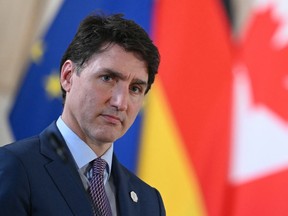The Struggles of G7 Democracies: A Comprehensive Analysis
In recent years, the G7 has witnessed significant challenges in maintaining stable governments across its member nations. These challenges stem from a complex interplay of economic and political factors, including demographic shifts, fiscal pressures, and shifting voter preferences.
The article highlights that global issues such as slow growth, an aging population, and reduced public trust in traditional political parties have created daunting fiscal landscapes for many G7 countries. For instance, Canada faced a critical debt crisis, while France’s political collapse was exacerbated by years of budget cuts and ideological divisions within its parliament. Similarly, Japan’s corruption scandals impacted the stability of its leading party, the LDP.
The rise of populist movements in Europe and elsewhere has further complicated governance efforts. Leaders like Donald Trump have leveraged their influence to exacerbate tensions with G7 allies, promoting divisive rhetoric that often alienates traditionally supportive partners. This shift towards radical nationalism has made it increasingly difficult for G7 nations to find common ground, as seen in the case of Germany’s struggling free democracies and their cautious stance toward U.S. allyship.
Economic factors also play a crucial role, with global markets experiencing volatility due to reduced trade volumes and geopolitical tensions. The impact on individual countries varies widely, from Canada’s job market issues to Japan’s struggling economy. These challenges are interconnected, reflecting broader systemic changes in international relations and economic dependencies.
In conclusion, the G7 faces a multifaceted challenge requiring a collective response. Addressing these issues will necessitate pragmatic cooperation among member nations, as well as a deeper understanding of the underlying causes of current tensions. By fostering dialogue and collaboration, the G7 can navigate these complexities to promote stability and prosperity for all its members.




